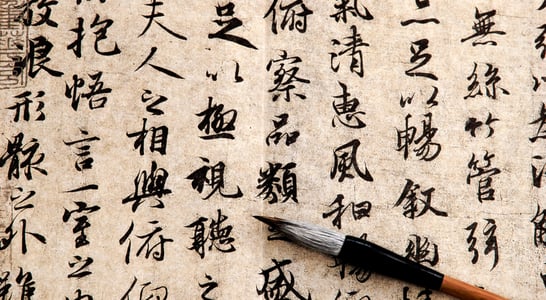
French Language Day
Celebrating rich heritage, the melodious language of romance captivates with its elegance, sparking cultural curiosity and connection.
Oui, monsieur! This is the day to celebrate the French language!
Categorized as a musical language, French is often considered to be one of the most beautiful languages in the world.
As part of the family of romance languages, French is related to other languages such as Spanish, Portuguese, and Italian. But anyone who has tried to read or speak it knows that it has its own special flair about it.
French Language Day offers a perfect opportunity to show appreciation and love for this language that is often as pleasing to the ear as it is to the heart.
How to Celebrate French Language Day
Try Speaking French
One of the best ways to begin celebrating French Language Day is to try speaking some French, of course.
Those who have very little experience might want to start with a few common words, and those who may have taken French in school can brush off some vocabulary and try using it again.
Or, it might be fun to consider some words in English that have French roots, such as croissant, etiquette, crochet and rendezvous.
Watch a French Film
An excellent way to get on board with French Language Day, even for folks who aren’t fluent in French, is to listen to it being spoken.
But unless a person happens to have a French friend, it might be easier to do this by engaging with a French language film. To understand what’s going on, turn on the subtitles in English but listen along in French.
Listen to French Music
Show some love and appreciation for French Language Day by listening to and enjoying some French music throughout the day.
Make a little playlist on Spotify, Apple Music, or another platform with favorite artists that sing in the French language, including some of these songs and albums:
- Careless Love by Madeleine Peyroux (2004)
- La Vie en Rose by Edith Piaf (1947)
- Joe le taxi by Vanessa Paradis (1987)
- L’amour by Karim Ouellet (2012)
History of French Language Day
French Language Day was started in 2010 through an initiative of the United Nations Department of Public Information.
The purpose of the day is to raise awareness and respect for the culture, history and achievements of the six major languages of the people of the world. The other five official languages of the United Nations include Arabic, Russian, Chinese, English and Spanish.
French is a fascinating language because not only is it a working language of the UN but it is an official language in Europe, Africa and North America. It is spoken in some capacity on all of the continents of the world, and that is certainly worth celebrating!
It was decided by the UN that French Language Day would be observed on this day as it is the anniversary of the International Organization of La Francophonie. This is the organization that represents French-speaking countries and was founded on March 20, 1970.
French Language Day FAQs
What’s the history behind French Language Day?
French Language Day began as an initiative by UNESCO in 2010 to celebrate the diversity of languages.
It honors the French language’s contribution to culture, science, and diplomacy.
UNESCO chose March 20 because it coincides with the International Day of La Francophonie, a day celebrating French-speaking communities worldwide.
French is one of the most widely spoken languages across all continents, bridging cultures from Europe to Africa to the Caribbean.
How did French influence English words?
French has contributed thousands of words to English, dating back to the Norman Conquest of 1066.
Words like “royal,” “court,” and “culinary” reflect this influence. About 30% of English words stem from French.
French vocabulary reshaped English, especially in law, government, and the arts. Even common words like “beef” and “pork” trace back to French origins.
What unique ways do people celebrate French Language Day?
French Language Day celebrations vary widely. In Quebec, some schools hold “dictée” contests, challenging students to write down complex French phrases with perfect spelling and grammar.
In Switzerland, language lovers organize poetry readings, where participants perform classic French poetry.
Some African nations, where French is a major language, host theater festivals celebrating French-speaking playwrights.
What are some fun, lesser-known French idioms?
French has unique idioms that can seem funny when translated literally.
For example, “appeler un chat un chat” means “call a cat a cat,” similar to “call a spade a spade” in English.
Another favorite is “avoir le cafard,” which translates to “to have the cockroach,” meaning to feel blue. French also uses “poser un lapin” (“to put down a rabbit”) to mean standing someone up on a date.
Did you know French used to be England’s official language?
For nearly 300 years, French was the official language of England, following the Norman Conquest.
It was used in English courts and by the ruling class. French influenced English legal and administrative terms, which is why many legal terms in English still sound very French, like “plaintiff” and “tort.”
Are there different types of French spoken around the world?
Yes! French varies by region, each with unique words and accents. Canadian French includes words borrowed from indigenous languages, while African French incorporates local dialects.
In Louisiana, French evolved into Cajun French, with its own distinct flair. Each variety keeps the language dynamic and culturally relevant.
What’s a common myth about French being hard to learn?
One myth claims that French pronunciation is too complex for non-native speakers.
While it has unique sounds like nasal vowels, French has straightforward grammar and predictable spelling rules.
Many students find its structure more logical than English, and millions learn it successfully as a second language every year.
How do French words make everyday life sound more elegant?
Many English speakers adopt French terms to add flair, especially in cooking and fashion.
Words like “à la carte” (menu choices), “haute couture” (high fashion), and “en route” (on the way) elevate conversations.
Even basic French words, like “café,” “chef,” and “souvenir,” add a touch of sophistication to everyday English.
What are some popular French tongue twisters?
French tongue twisters, known as “virelangues,” offer a fun way to practice pronunciation.
One classic is “Les chaussettes de l’archiduchesse sont-elles sèches? Archi-sèches.”
It means “Are the archduchess’s socks dry? Super dry.” Another favorite is “Si mon tonton tond ton tonton, ton tonton sera tondu,” which translates to “If my uncle shaves your uncle, your uncle will be shaved.”
What unique French words have no English equivalent?
French has words with specific meanings that don’t translate directly to English. “Dépaysement” describes the feeling of being out of place in a new environment. “
Retrouvailles” refers to the joy of reuniting with someone after a long separation.
“Flâner” captures the idea of strolling without a purpose, just for the pleasure of it.
Also on ...
View all holidaysWon’t You Be My Neighbor Day
Fred Rogers, beloved host of Mister Rogers' Neighborhood, taught us to be kind and empathetic, and his legacy continues to inspire and brighten the world.
International Day of Happiness
Finding joy in the little moments, and appreciating life's simple pleasures are key ingredients to a fulfilling life.
Hufflepuff Pride Day
The Hogwarts house known for its loyalty and hard work has a badger as its symbol, yellow and black colors, and a great sense of community!
World Storytelling Day
Weaving magical tales, captivating listeners with every word, transporting them to new worlds - it's a skill that has been cherished for centuries.
We think you may also like...
Chinese Language Day
Fire up Duolingo, Rosetta Stone, or sign up for a language class to learn the world’s second most widely spoken language, which dates back as far as 1250 BCE.
German Language Day
Experience the language and beautiful culture of Germany. From "Guten Tag" to "Auf Wiedersehen", German is a language worth exploring.








